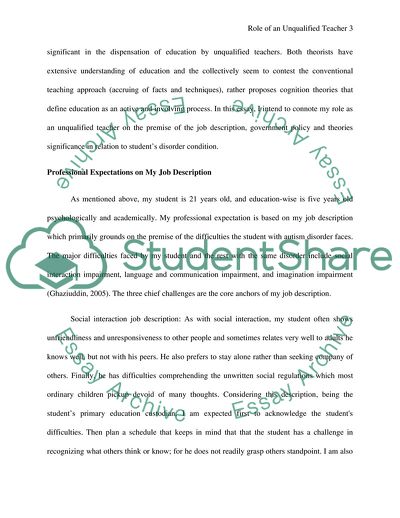Cite this document
(Role of an Unqualified Teacher Essay Example | Topics and Well Written Essays - 2750 words, n.d.)
Role of an Unqualified Teacher Essay Example | Topics and Well Written Essays - 2750 words. https://studentshare.org/education/1850635-my-role-as-an-unqualified-teacher-in-a-school
Role of an Unqualified Teacher Essay Example | Topics and Well Written Essays - 2750 words. https://studentshare.org/education/1850635-my-role-as-an-unqualified-teacher-in-a-school
(Role of an Unqualified Teacher Essay Example | Topics and Well Written Essays - 2750 Words)
Role of an Unqualified Teacher Essay Example | Topics and Well Written Essays - 2750 Words. https://studentshare.org/education/1850635-my-role-as-an-unqualified-teacher-in-a-school.
Role of an Unqualified Teacher Essay Example | Topics and Well Written Essays - 2750 Words. https://studentshare.org/education/1850635-my-role-as-an-unqualified-teacher-in-a-school.
“Role of an Unqualified Teacher Essay Example | Topics and Well Written Essays - 2750 Words”. https://studentshare.org/education/1850635-my-role-as-an-unqualified-teacher-in-a-school.


